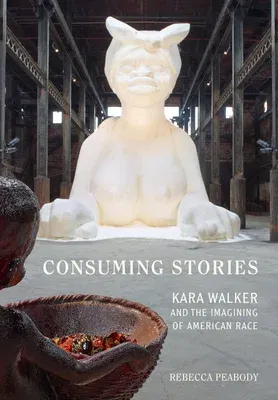In Consuming Stories, Rebecca Peabody uses the work of contemporary
American artist Kara Walker to investigate a range of popular
storytelling traditions with roots in the nineteenth century and
ramifications in the present. Focusing on a few key pieces that range
from a wall-size installation to a reworked photocopy in an artist's
book and from a theater curtain to a monumental sculpture, Peabody
explores a significant yet neglected aspect of Walker's production: her
commitment to examining narrative depictions of race, gender, power, and
desire. Consuming Stories considers Walker's sustained visual
engagement with literary genres such as the romance novel, the neo-slave
narrative, and the fairy tale and with internationally known stories
including Roots, Beloved, and Uncle Tom's Cabin. Walker's
interruption of these familiar works, along with her generative use of
the familiar in unexpected and destabilizing ways, reveals the extent to
which genre-based narrative conventions depend on specific
representations of race, especially when aligned with power and desire.
Breaking these implicit rules makes them visible--and, in turn,
highlights viewers' reliance on them for narrative legibility. As this
study reveals, Walker's engagement with narrative continues beyond her
early silhouette work as she moves into media such as film, video, and
sculpture. Peabody also shows how Walker uses her tools and strategies
to unsettle cultural histories abroad when she works outside the United
States. These stories, Peabody reminds us, not only change the way
people remember history but also shape the entertainment industry.
Ultimately, Consuming Stories shifts the critical conversation away
from the visual legacy of historical racism toward the present-day role
of the entertainment industry--and its consumers--in processes of
racialization.

